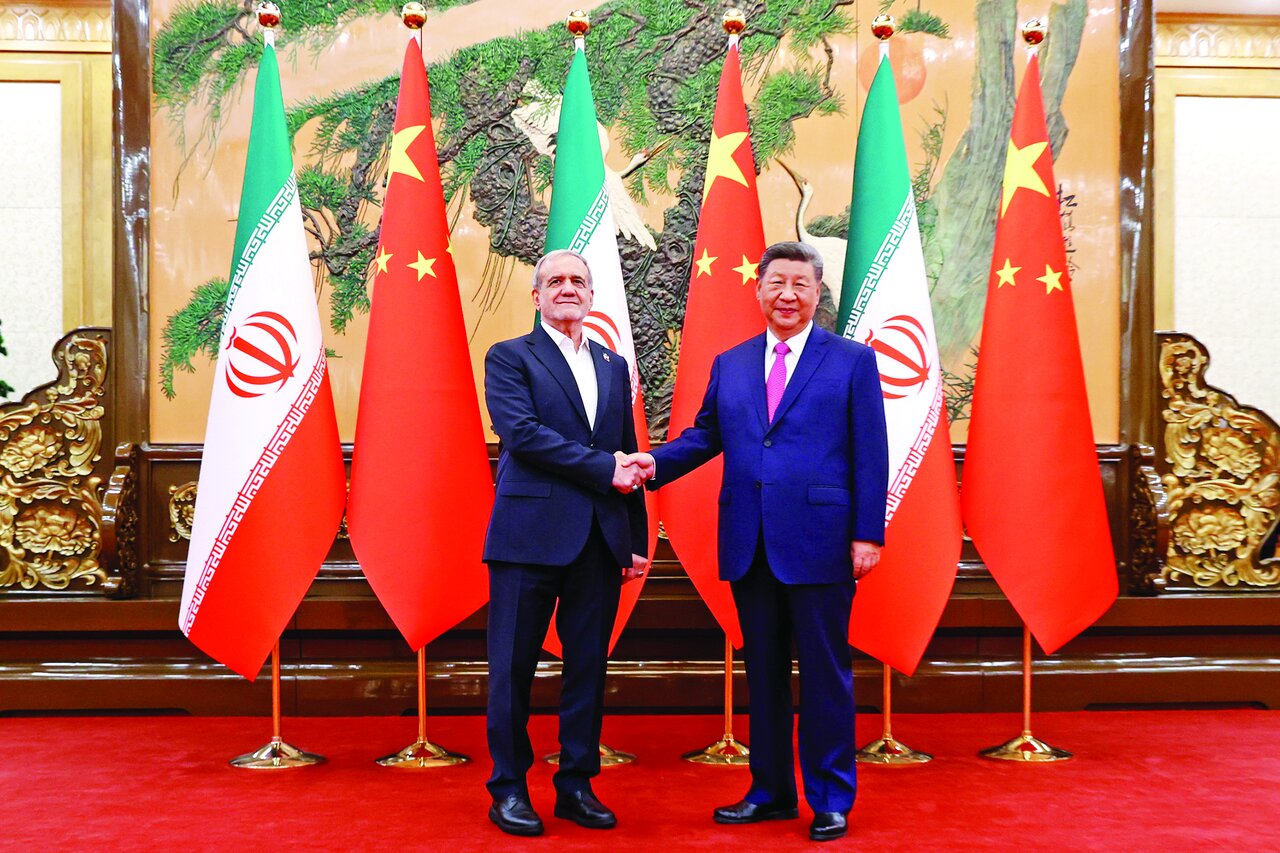The lion-dragon synergy

TEHRAN – President Masoud Pezeshkian arrived in China on Monday for a four-day official visit, the longest by an Iranian leader to the country. The visit is expected to strengthen economic and security ties between the two nations, and potentially deliver key benefits for Iran.
After attending the 25th Meeting of the SCO Council of Heads of State in northern China's port city of Tianjin along with 19 other world leaders, Pezeshkian traveled by train to Beijing for a meeting with Chinese President Xi Jinping, and a Wednesday military parade that would mark the 80th anniversary of the end of WWII.
During their Tuesday meeting, Pezeshkian told Xi that Iran is prepared to deepen cooperation with China across various sectors. He said all aspects of the 25-year cooperation agreement signed in 2020 could be implemented with thorough planning and analysis. Despite the traditionally warm relationship between Iran and China, Iranians have shown a growing willingness in recent years to deepen bilateral cooperation.
With the Trump administration driving wedges between the United States and other countries at an unprecedented pace, China is increasingly seen as an alternative global leader. Iranians, too, should view China not just as another country, but as a world power capable of bringing immense benefits to Iran, said Hamed Vafayi, a China expert and Faculty Chief of Chinese Language and Literature at Tehran University.
“Iran and China, which have been long-time partners, declared their intention to forge a strategic relationship over a decade ago. However, that strategic partnership has yet to fully materialize. For that, more shared interests must be created between the two countries,” Vafayi explained.
Iran's strategic geopolitical location and substantial energy reserves make it a crucial component of China's key economic initiatives, particularly the Belt and Road Initiative. Beyond its participation in the project, Iran offers great potential as a vital security partner. “China could leverage Iran as both a transportation corridor and a source of energy. Moreover, given Iran's significant role in West Asian stability, China can rely on Iran to help protect its regional interests. The security of China’s western territories could also benefit from cooperation with Iran.”
Iranians’ gravitation towards the Chinese has not been congruent over the years. President Hassan Rouhani, who led the country from 2013 to 2021 is famously known to have squandered valuable opportunities to deepen cooperation with China. Conservative political factions accuse him of having disfavored the East to appease Western states, which signed a nuclear deal with Rouhani and lifted anti-Iran sanctions in 2015, only to reinstate and intensify them a couple of years later.
Pezeshkian, in his Tuesday meeting with Xi, underscored Iran's commitment by stating that China could count on Iran as a friend and a "powerful and determined ally”. Although Pezeshkian began his term by advocating for stronger ties with both East and West, the war Washington waged on Iran back in June in the middle of negotiations, as well as Europe’s continued exploitation of the 2015 deal have seemingly diminished his aspirations for improved relations with the West.
The 12-day war Iran fought against Israel and the U.S. has also spurred discussions about military exchanges between Tehran and Beijing.
“We've had military cooperation with China for a considerable time," stated Mahdi Bakhtiari, a military expert. "For example, during the Iran-Iraq War in the 1980s, China supplied Iran with missiles, when the country was still developing its own capabilities." Bakhtiari added that the C801 and C802 anti-ship cruise missiles purchased from China in 1990 played a critical role in the development of Iran's first generation of domestically produced anti-ship cruise missiles.
Currently, Iran's most strategic acquisitions from China would be advanced fighter jets and air defense systems. "While our military demonstrated impressive capabilities with missiles and drones during the recent war, the need for improved fighter jets and air defense systems became evident. China possesses cutting-edge technology in manufacturing both.”
Bakhtiari emphasized that future military cooperation with China should extend beyond mere purchases, and include collaborative manufacturing as well as the exchange of technological expertise.
It is still unclear how much Pezeshkian's trip to China will bring the two countries closer together. But Xi told the Iranian president during their meeting that Beijing views Tehran as a “strategic partner”. He said the two nations should work in concert to combat “unilateralism”.
